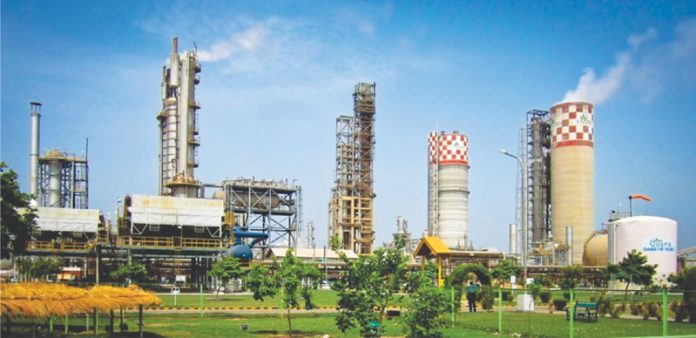ISLAMABAD: In a significant move to revive Pakistan’s declining industrial sector, the Prime Minister’s Committee on Industrial Policy has finalized a comprehensive set of reforms aimed at supporting struggling industries, enhancing exports, and promoting import substitution. The key recommendations were approved in a high-level meeting chaired by Special Assistant to the Prime Minister (SAPM) on Industries and Production, Haroon Akhtar Khan.
As per details the finalized proposals, developed by eight specialized sub-committees, have now entered the implementation phase and have been presented to Prime Minister Shehbaz Sharif, who appreciated the committees’ performance. Haroon Akhtar Khan noted that the industrial sector’s contribution to GDP has declined from 26 percent in 1996 to just 18 percent in 2025, underscoring the urgent need for a revival strategy. He emphasized the importance of industrial growth for economic stability, stressing the need to expand exports and reduce dependence on imported goods.
As part of the key policy decisions, the State Bank of Pakistan will issue new guidelines to facilitate the rehabilitation of sick industries, while amendments are being proposed to the Corporate Rehabilitation Act 2018. Banks have been advised to adopt data forecasting tools to detect early signs of industrial distress, and classification of industrial units has been determined in consultation with the Pakistan Banking Association. To incentivize investment and manufacturing, the government has recommended a gradual reduction in corporate tax rates from 29 percent to 26 percent over the next three years. Reforms are also being proposed to the SECP Act, Anti-Money Laundering Act, and Income Tax Ordinance to align regulatory frameworks with industrial development goals.
To ensure rapid implementation, SAPM Haroon Akhtar Khan has constituted ten new sub-committees and directed them to deliver tangible outcomes within a week. The new industrial policy aims to reduce over-reliance on the textile sector by diversifying into areas such as engineering goods, chemicals, IT hardware, pharmaceuticals, and renewable energy equipment. It also seeks to encourage local production to replace imported raw materials and finished goods, and to expand value-added exports.
Support for small and medium enterprises (SMEs) will be enhanced through better access to finance, infrastructure, and technology, while automation, digitization, and research and development will be promoted to boost productivity and quality. The policy also envisions inclusive regional growth by targeting underdeveloped areas including Balochistan, rural Sindh, and southern Punjab, with the help of Special Economic Zones and CPEC-linked opportunities. A strong emphasis is being placed on sustainable industrialization by promoting environmentally friendly and energy-efficient production practices.
Despite these ambitious reforms, the government acknowledged major challenges that continue to hamper industrial progress. These include energy shortages and high tariffs, poor infrastructure, regulatory red tape, limited credit access for SMEs, and low spending on innovation. Industry stakeholders present at the meeting also highlighted the inconsistency of policies over the years as a major hurdle to growth and investor confidence.
Haroon Akhtar Khan described the policy as a potential game-changer capable of triggering an industrial revolution in Pakistan, provided it is implemented with commitment and speed.





Government. Must support Local Industries to create Jobs and enhance Exports, Further Tax reforms in favour of businesses will also promote economic activities